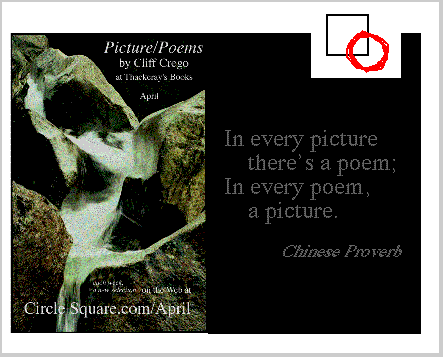
Picture/Poems:
Download Page
using the free InChorus
Media Player,
recorded by Cliff Crego
"Flowers are to the background green
of meadow and forest what a poem is
to the constant chatter of sounds which
surrounds us. How strikingly beautiful
they are, these centers where essences
converge."